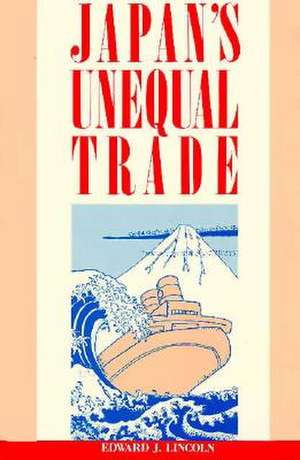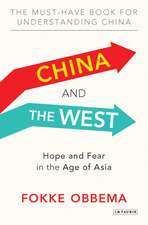Japan's Unequal Trade
Autor Edward J. Lincolnen Limba Engleză Paperback – mar 1990
With all the rapid economic success in Japan, it is easy to forget just how insular the nation has been, and how strikingly different its trading patterns remain from those of other industrialized nations. Japan is moving into an era of greater interaction with the world, but Lincoln contends that this does not mean the United States and other nations can end their pressure on Japan to continue opening its markets. "Now is the time to bring Japan into the fold," Lincoln writes in his introduction.
Lincoln focuses on the question of access to Japanese markets, Japan's pattern of trade on imports, and the consequences of large trade and current-account imbalances. He argues against the United States abandoning its free-trade ideal and offers suggestions for applying pressure to encourage greater real access to Japanese markets.
Lincoln focuses on the question of access to Japanese markets, Japan's pattern of trade on imports, and the consequences of large trade and current-account imbalances. He argues against the United States abandoning its free-trade ideal and offers suggestions for applying pressure to encourage greater real access to Japanese markets.
Preț: 198.51 lei
Nou
Puncte Express: 298
Preț estimativ în valută:
37.99€ • 39.76$ • 31.62£
37.99€ • 39.76$ • 31.62£
Carte tipărită la comandă
Livrare economică 31 martie-14 aprilie
Preluare comenzi: 021 569.72.76
Specificații
ISBN-13: 9780815752615
ISBN-10: 081575261X
Pagini: 223
Dimensiuni: 152 x 229 x 16 mm
Greutate: 0.33 kg
Ediția:New.
Editura: Brookings Institution Press
Colecția Brookings Institution Press
ISBN-10: 081575261X
Pagini: 223
Dimensiuni: 152 x 229 x 16 mm
Greutate: 0.33 kg
Ediția:New.
Editura: Brookings Institution Press
Colecția Brookings Institution Press
Notă biografică
Edward J. Lincoln is a senior fellow in Asia and Economic Studies at the Council on Foreign Relations. His previous Brookings books include Arthritic Japan (2001), Troubled Times: U.S.-Japan Trade Relations in the 1990s (1999), Japan's New Global Role (1995), and Japan's Unequal Trade (1990). In the mid-1990s, Lincoln served as special economic advisor to Walter Mondale, former U.S. ambassador to Japan.
Descriere
With all the rapid economic success in Japan, it is easy to forget just how insular the nation has been, and how strikingly different its trading patterns remain from those of other industrialized nations. Japan is moving into an era of greater interaction with the world, but Lincoln contends that this does not mean the United States and other nations can end their pressure on Japan to continue opening its markets. "Now is the time to bring Japan into the fold," Lincoln writes in his introduction.
Lincoln focuses on the question of access to Japanese markets, Japan's pattern of trade on imports, and the consequences of large trade and current-account imbalances. He argues against the United States abandoning its free-trade ideal and offers suggestions for applying pressure to encourage greater real access to Japanese markets.
Lincoln focuses on the question of access to Japanese markets, Japan's pattern of trade on imports, and the consequences of large trade and current-account imbalances. He argues against the United States abandoning its free-trade ideal and offers suggestions for applying pressure to encourage greater real access to Japanese markets.










